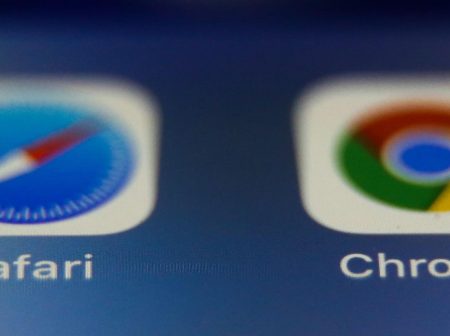Rafael Umann is the CEO of Azion.
According to Gartner, a legacy application is “an information system that may be based on outdated technologies, but is critical to day-to-day operations.”
“Critical” is the keyword here. Frequently, business continuity is dependent on the correct operation of those systems. When legacy applications fail, the results can be catastrophic. Modernization challenges, in the form of code complexity, high development costs and the risk of introducing security vulnerabilities (just to name a few) are widely known and haunt the nightmares of CTOs and business leaders. This duality can induce change paralysis even in the most innovative companies.
AI tools offer a way to break this deadlock and reap the benefits while minimizing the risks. When implemented and used properly, they can significantly assist in the modernization of existing legacy applications in many ways.
Learning Faster And Applying Best Practices
Transitioning a legacy application from a monolith to a modern architecture might involve code refactoring on top of other already complex architectural and technological changes, which can become time-consuming and error-prone. From helping with the assessment of the legacy application to defining improvement opportunities to automating parts of the code refactoring and software tests, the use of AI can optimize the overall modernization process. This not only helps reduce the workload on software architects and developers but also minimizes the risk of using non-ideal solutions and can lead to better-performing, more secure applications.
AI can also help ensure that the modernized application adheres to current best practices for coding standards and design patterns, which may have evolved since the legacy application was first created.
Furthermore, AI ensures code consistency, aids legacy code translation and facilitates monolithic app refactoring into microservices during modernization. Utilizing AI for modernization can reveal the advantages of edge computing for faster, secure architecture, scalability and adaptability to diverse infrastructures, streamlining app development.
Faster Development Process
AI-based “design to code” tools have become a game-changer in the software development industry. They accelerate the overall development process by quickly translating from design frameworks into functional code, reducing the time and effort usually required for manual implementation of front-end applications.
While doing so, they eliminate the potential for human error, ensuring a high level of quality in the final product. They also facilitate the democratization of software development by enabling non-developers to turn their designs into working applications, thereby bridging the gap between design and development.
AI tools can also be paired with human developers, increasing their productivity and enhancing code quality. A survey conducted by GitHub pointed out that 92% of the U.S.-based developers interviewed are already using AI code assistants both in and outside of work, and 70% of them say that those tools give them an advantage at work.
Even a generalist tool, like ChatGPT, can write code that is good enough to pass a coding interview for a position as a Level-3 engineer at Google. Overall, AI-generated code streamlines and enhances the software development process, making it more efficient, less error-prone and more accessible.
Creating And Maintaining Ideal Testing Scenarios
AI can boost software development by automating the generation of test cases. Algorithms can analyze code, user stories and historical data to automatically generate comprehensive test scenarios. This not only saves developer time but also ensures a wider test coverage, reducing the chances of undiscovered defects.
Another area where AI can help is the creation of realistic and diverse test data, simulating application behavior and a variety of user scenarios. This enables developers to uncover vulnerabilities and performance bottlenecks that may not be apparent with static or limited test data.
AI-driven testing tools can also be integrated into the development pipeline, running automated tests continuously and providing immediate feedback to developers, thus reducing the chances of critical defects slipping through the cracks.
Code maintenance and quality assurance can benefit from AI, which can assist in keeping test scenarios up to date as the software evolves. By leveraging past testing data, AI can provide valuable insights into the overall quality of the software, helping executives make informed decisions about software releases and prioritize areas for improvement.
Understanding The Potential Risks Of AI
Integrating AI into your operations presents challenges, such as infringement on existing intellectual property and over-reliance on AI, which can lead to a lack of human oversight. Moreover, there’s also the risk of becoming too dependent on AI vendors, which can lead to vendor lock-in and reduced flexibility.
Potential risks further include biased or inaccurate AI responses due to incomplete or poorly selected training data, and a lack of domain knowledge during AI deployment could make us prone to misguided decisions. By working closely with domain experts and maintaining strong AI practices, you can mitigate these issues and strengthen your path toward a responsible AI strategy.
A Fast Lane On Your Modernization Journey
AI is a powerful ally—and not a magical solution—in your application modernization journey. It can accelerate learning and guide you through best practices, automate repetitive tasks, ensure consistency, eliminate human error and free your teams to focus on the higher-level architectural aspects of the process instead of the intricacies of implementation.
AI not only enhances the efficiency and quality of the modernization process but also helps deliver more secure, robust and maintainable software.
As a tech leader, it’s important to understand both the benefits and potential risks of AI. With this guidance and a proper strategy in place, you can significantly increase the potential to grow your business and create an ideal AI culture that empowers the strategic and ethical use of artificial intelligence.
Forbes Technology Council is an invitation-only community for world-class CIOs, CTOs and technology executives. Do I qualify?
Read the full article here










